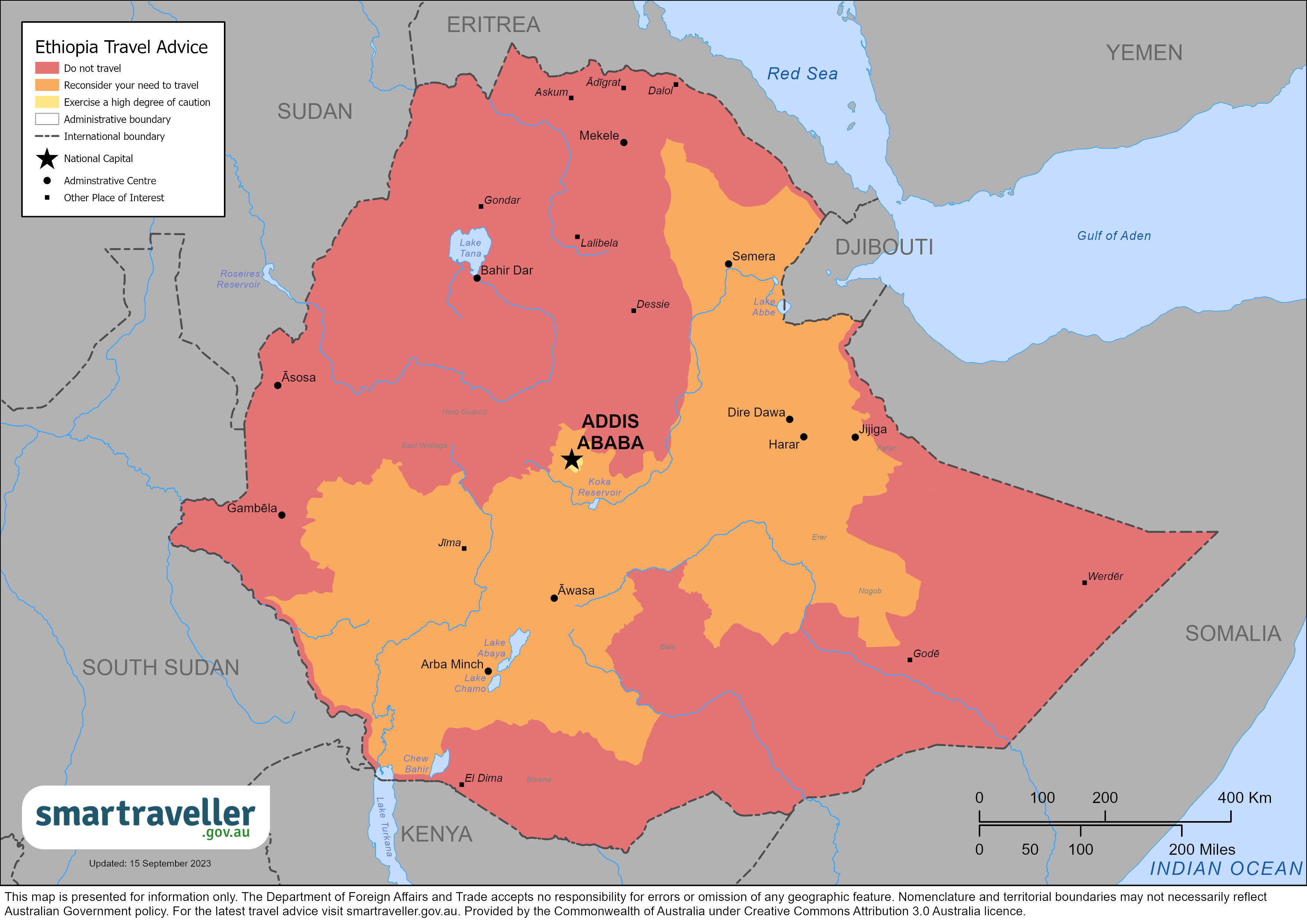Landmines
Landmines are a hazard in the border areas with Eritrea, Sudan and Somalia. If you travel near these borders despite our advice, stick to well-travelled roads. See Safety
Driving permit
If you want to drive in Ethiopia, you can apply to convert a valid Australian licence to a local one. It’s an Ethiopian Government requirement that your Australian license first be authenticated by the Department of Foreign Affairs and Trade in Australia and then by the Australian Embassy in Ethiopia for it to be recognised. See the Ethiopian Embassy for more information.
International driving permits aren’t recognised in Ethiopia.
Road travel
Driving in Ethiopia can be dangerous because of:
- poor road conditions
- poorly maintained vehicles
- local driving practices
- poor lighting
- people and animals, particularly camels, wandering on roads
Security forces sometimes close roads, including highways. Closures can occur without notice.
Due to the dynamic security situation, we advise against road travel outside major cities in Ethiopia.
Car accidents
Drivers involved in car accidents can face severe punishments, including prison and fines.
If you’re in a car accident, it’s illegal to move your vehicle before a police officer arrives. However, if you feel unsafe, leave the area immediately and report to the nearest police station.
If you plan to drive in Ethiopia:
- become familiar with local traffic laws and practices before driving
- drive legally
- don’t drink and drive
- keep your car windows and doors closed and locked at all times, including when moving
- avoid driving at night, where possible
If you’re stopped by police, follow their instructions.
If rocks are thrown at your car, leave the area as quickly and safely as possible.
To protect yourself when travelling outside Addis Ababa:
- get local advice on road and security conditions along your planned route before you travel
- leave details of your travel itinerary with a reliable person
- travel in a group where possible
- carry a well-stocked medical pack
- consider carrying a satellite phone — regular telephones, including the mobile network, are unreliable
More information:
Motorcycles
Check with your insurer whether your policy covers you when using a motorbike or similar vehicle. Your policy may not cover accidents that occur while using these vehicles.
Always wear a helmet. Make sure your passenger does too.
Taxis
Only use registered taxis. Arrange these through your hotel or an app-based booking service such as RIDE or Feres. Avoid flagging down taxis in the street.
Consider sitting in the back seat rather than the front.
Not all taxis are metered. Ensure the meter is on or agree on the fare before you leave.
Public transport
Ethiopia has bus and limited rail services. However, safety standards aren’t the same as in Australia. Buses have been attacked outside Addis Ababa.
Petty crime occurs on public transport. Take care of your belongings when travelling on buses and trains.
More information:
Air travel
DFAT doesn’t provide information on the safety of individual commercial airlines or flight paths.
Check Ethiopia’s air safety profile with the Aviation Safety Network.
More information:

